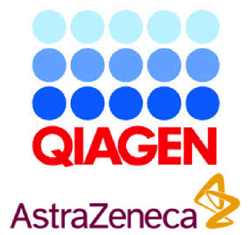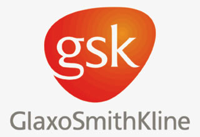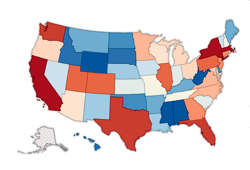
Montgomery County launches into the future as it establishes the Thingstitute, an innovative living laboratory for Internet of Things (IoT) technology. By providing an unparalleled test bed for start-ups, established companies, and research institutions, the lab will feature co-working space and equipment for fabricating and testing devices.
Located in Rockville's historic Red Brick Courthouse, the Thingstitute will host an opening reception on Tuesday, January 27, 2015 from 5:30-7:00 pm.

MedImmune has formed a partnership with the National Cancer Institute to develop cancer therapies that use the immune system or attack tumor cells to fight the disease.

BioIT Solutions, a provider of enterprise systems built on the 1Platform4™ product suite, today announced that CIO Review has chosen BioIT Solutions as one of its 20 Most Promising Biotechnology Solution providers.
BioIT Solutions was selected for its expertise in providing data management solutions for biotech research, drug development, and diagnostics. The annual list of companies is selected by a panel of experts and members of CIO Review’s editorial board to recognize and promote technology entrepreneurship.

Germantown-based Intrexon Corp. a synthetic biology company, plans to raise up to $150 million though a secondary offering of common stock, the company said late Tuesday.
Intrexon (NYSE: XON) was trading at around $29 a share Wednesday.

CEOCFO: Mr. Fannon, what is the basic concept at BioIT Solutions?
Mr. Fannon: BioIT Solutions was formed to address needs for advanced computational, workflow and data management systems for biological research, drug development and diagnostics. Biology has become an information science. As scientists decoded the genome and discovered genes that encode proteins, results were stored in databases that form the basis for new approaches to biological discovery. There is a lot of emphasis on digital biology these days -- work that used to require painstaking lab experiments can now be done, very efficiently, using databases and computational tools. The significant and rapid convergence of biology and information science is creating excellent opportunities for effective solutions for research, diagnostics, and personalized medicine.

Following AstraZeneca's December announcement that it is taking steps to reintroduce the EGFR-targeted non-small cell lung cancer drug Iressa (gefitinib) in the US, Qiagen said last week that it would develop a tissue-based molecular diagnostic test to accompany the drug's launch.

PharmAthene Inc. now knows how much money it stands to get in its long-running lawsuit with Siga Technologies Inc.: A judge Thursday said Siga must pay PharmAthene $195 million and $30,663 per day in interest if Siga loses its appeal to the Delaware Supreme Court.
The case dates to 2006, when Annapolis-based PharmAthene sued New York-based Siga after the companies' planned merger fell apart. PharmAthene claimed it was entitled to some of the profits from Tecovirimat, Siga's smallpox antiviral.

Nick Culbertson was a Green Beret. Robert Lord worked at a hedge fund in Connecticut. Then after a career change, both found themselves in medical school at Johns Hopkins University. But while there, the pair met and discovered a much greater need.

Tuesday, Feb 10, 2015 From 4:00-6:00 PM
Please join us for a Business Roundtable Discussion moderated by Bernanrd T. Ferrari, MD, JD, Prfoessor and Dean - Carey School of Business, at our new FastForward East Innovation Hub!

Alexandria Real Estate Equities, the largest owner and developer of real estate for the life-sciences industry in the nation wants to raise up to $20 million to build digital health startups in San Francisco, SFGate reports. Last year, the real estate developer announced that it would start three new accelerators nationwide to focused on agriculture, biotech and digital health. The biotech space is already up and running in New York City and has attracted giant pharma companies such as Pfizer Inc. and Eli Lily & Co with $51 million in funding. The agriculture space is scheduled to open later this year in North Carolina.

Advocates for programs spending state dollars on stem cell research or investment in technology companies were nervous about what Gov. Larry Hogan's budget would hold for them, given warnings of "strong medicine" to cure fiscal woes.
But after Hogan's spending plan was unveiled Friday, they were relieved to find that the Republican's business-friendly message spared several economic development programs that were popular under Democratic Gov. Martin O'Malley.

The first batch of GlaxoSmithKline's experimental Ebola vaccine has been dispatched to West Africa and is expected to arrive in Liberia later on Friday, the British drugmaker said.
The World Health Organization said on Thursday the Ebola outbreak in West Africa, the worst in history, appears to be waning but cautioned against complacency. The epidemic has seen 21,724 cases reported in nine countries since it started in Guinea a year ago. Some 8,641 people have died.

U.S. venture capital investment hit $48.3 billion in 2014, its highest level since 2000, according to data from the National Venture Capital Association (NVCA) and PricewaterhouseCoopers (PwC). Investments jumped 61 percent over the previous year in terms of dollars. Deals were up as well, but by a more modest 4 percent to 4,356 deals in 2014, indicating the growth of deal size and the presence of a number of “megadeals.” NVCA also noted that investments were dispersed throughout the country, with 160 U.S. metros receiving some venture capital.

BioCity, the incubation specialist with locations in the East Midlands, North West and Scotland has announced a new investment fund, created following a significant contribution by AstraZeneca.
The £5 million fund, to be managed by BioCity will make equity investments, typically between £50,000 and £250,000, in life science companies based at Alderley Park, Cheshire. BioCity Chairman, Dr Louis Nisbet explains: “We are very pleased that AstraZeneca has chosen BioCity to manage these funds, not only to support the growth of a new generation of life science businesses at Alderley Park but also to make sound investment decisions that aim to replenish and grow this evergreen fund over time."

CDVCA is organizing its 20th anniversary Annual Conference in Washington, DC on March 18-20, 2015 in Washington, DC. CDVCA’s Annual Conference is the premier training and networking event for anyone interested in developmental venture capital, including social VC fund managers, emerging fund managers, investors, economic development professionals, foundations representatives, policy makers, government officials and aspiring students.

Venture capital investment soared in 2014, hitting a high that hasn’t been seen since 2000. As reported in The Wall Street Journal, $52.12 billion was invested in private companies last year by venture and private equity firms, as well as corporations, hedge funds and mutual funds, according to Dow Jones VentureSource.

The National Heart, Lung, and Blood Institute (NHLBI) has 3 targeted funding opportunities with deadlines in February. It’s also not too early to start preparing for the April 5 Omnibus solicitation deadline. Check your registrations (SAM must be renewed annually!) and reach out to discuss your project. For questions about the NHLBI SBIR/STTR programs, contact Small Business Coordinator Jennifer Shieh, PhD at NHLBI_SBIR@mail.nih.gov Human Cellular Models for Predicting Individual Responses to CFTR-Directed Therapeutics— Due February 9 For the development and validation of novel in vitro human cell-based tools for predicting the responses of individual patients to cystic fibrosis transmembrane conductance regulator (CFTR)-directed therapeutics for cystic fibrosis lung disease. SBIR: RFA-HL-15-027 STTR: RFA-HL-15-026 For questions about these funding opportunities, contact:Robert Smith, PhD, robert.smith4@nih.govProgram Director, Division of Lung Diseases Development of a Microfluidic Platform for Blood Testing in Neonatal & Pediatric Patients— Due February 10 (Phase II only) For the development of microfluidic devices to analyze blood for factors related to the thrombotic, transfusion, and/or hemostatic status of pediatric/neonatal patients. SBIR—Phase II only: RFA-HL-14-026This application must be based on an awarded SBIR or STTR-funded Phase I project. For questions about this funding opportunity, contact:Ronald Warren, PhD, rwarren@nhlbi.nih.gov Program Director, Division of Blood Diseases and Resources Stem Cell-Derived Blood Products for Therapeutic Use: Technology Improvement— Due February 20 For tools and technologies that enable further advances in the manufacturing process to produce safe and functional blood and platelet products at reduced costs. SBIR: RFA-HL-15-030 STTR: RFA-HL-15-029 Slides from the January 8 webinar are available—please send a request to NHLBI_SBIR@mail.nih.gov.
For questions about these funding opportunities, contact:Shimian Zou, PhD, shimian.zou@nih.gov Program Director, Division of Blood Diseases and Resources John Thomas, PhD, thomasj@nhlbi.nih.gov Program Director, Division of Blood Diseases and Resources

Startup Maryland (www.startupmd.org) today announced appointment of serial entrepreneur Shahab Kaviani as Entrepreneur-in-Residence (EiR).
A recognized leader of startup communities globally, Kaviani brings over a decade of first-hand entrepreneurial expertise and leadership experience most-recently as co-founder and CEO of Rockville, MD based CoFoundersLab (now Onevest). Previously, Kaviani served on the executive management team growing another Maryland company, HyperOffice, into a cloud-collaboration software leader.

The most significant announcement that Apple made in 2014 wasn’t a larger-sized iPhone. It was that Apple is entering the health-care industry. With HealthKit, it is building an iTunes-like platform for health; Apple Watch is its first medical device. Apple is, however, two steps behind Google, IBM, and hundreds of startups. They realized much earlier that medicine is becoming an information technology and that the trillion-dollar health-care market is ripe for disruption.

View the '15 Biggest Innovations in Health Tech' infographic from Innovation in Practice.

UNC-Chapel Hill has created a $5 million fund to help startups commercialize technology developed at the university.
The new Carolina Research Venture Fund, an initiative of the university’s board of trustees, aims to address the dearth of seed funding available to startups. A long-standing maxim in the startup world is that the first infusion of cash is the toughest to raise.

With the surge in digital health tech, entrepreneurs who dream of developing the next killer healthcare app have plenty of reason to be optimistic. 2014 was a record-breaking year with over $4.1B in venture funding for digital health companies, more than the previous three years combined, according to Mercom Capital Group. The future of healthcare technology includes wearables that monitor vitals, apps that facilitate outpatient care, CRM systems that allow physicians to forge better relationships with patients, and more.